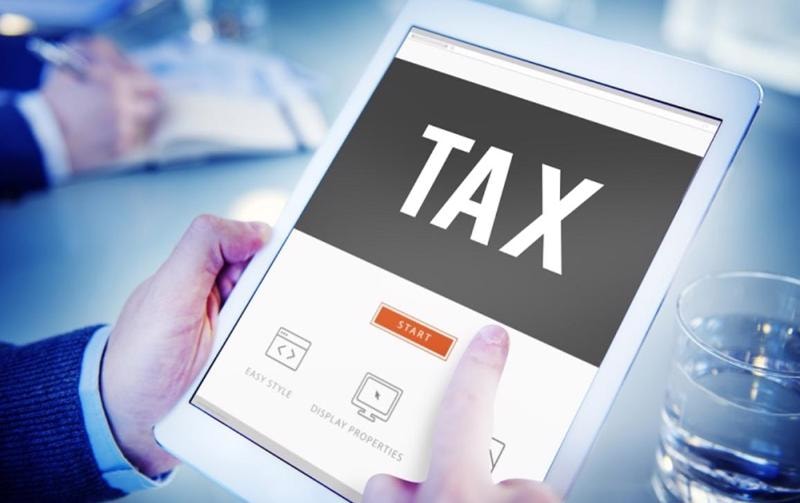
This is not just a simple tax management proposal, but also an initiative towards a culture of voluntary compliance with the law, transparency in business and protection of consumer rights, ensuring revenue for the budget.
Impact spread to the whole economy
Many people wonder: Is 0.1% of total VAT revenue significant? The answer is yes, if we look at the effectiveness associated with behavior and market changes:
Increasing sustainable budget revenue: According to international experience, programs to encourage receipts help reduce VAT losses significantly, especially in the small business sector, small business households and small services. In Vietnam, where millions of retail, food, transportation, and service transactions still take place without full invoices, creating incentives for buyers to proactively obtain invoices will directly increase declared revenue. In addition, the State can manage not only VAT, but also corporate income tax and other taxes related to the production and business activities of enterprises.
Promote market transparency: When consumers actively take invoices, sellers are forced to issue invoices to maintain their reputation and relationships with customers. This is a natural, gentle, but extremely effective method, helping to transform the market from "underground transactions" to "transparent transactions".
Changing business behavior: Businesses and business households will realize that issuing invoices is a long-term benefit: protecting their own and consumers' legal rights, enhancing brand reputation and expanding business opportunities.
It can be said that this 0.1% is not pure spending, but a strategic investment - small, but effective, with the potential to have a ripple effect across the entire economy.
The Law on Tax Administration has always been understood as a compulsory tool to handle violations; creating a 0.1% source will transform tax policy into an incentive tool, putting taxpayers at the center. At that time, taxpayers' rights will be protected and transparent, taxpayers will benefit from incentive programs, participate in electronic invoice prize drawing programs, and receive legal rewards if they win. In addition, all information about the program, prize drawing results and the mechanism for using this source of money must be public and transparent, and the Tax Department will be the unit responsible for organizing effective, transparent, and purposeful implementation and have the ability to audit annually.
International lessons have proven effective.
Countries that have implemented similar programs have shown remarkable results.
According to the assessment of the Organization for Economic Cooperation and Development (OECD) and the International Monetary Fund (IMF), invoice reward programs are highly effective when combined with electronic invoice systems, budget transparency and the development of monitoring mechanisms. The result is increased voluntary compliance and reduced fraud, creating long-term economic benefits.
Specifically, in Taiwan (China), the "Uniform Invoice Lottery" system helps increase the invoice collection rate from less than 30% to more than 80%, reducing tax losses and significantly increasing budget revenue.
In Korea, a tax refund program for consumers who participate in e-invoicing helps businesses' declared revenue increase by about 20% in just one year.
In Italy, the legislation of incentive schemes for receipting helps reduce VAT fraud and promotes voluntary compliance.
In Portugal, the introduction of an electronic invoice sweepstakes, combined with strong communication, created interest and changed consumer behavior.
Expected impact in Vietnam
From the experiences of other countries and general impact assessment, some impacts from implementation can be drawn as follows:
It is expected to increase the number of invoices issued by 10 - 25% in the retail and small service sectors.
Increased budget revenue: even if the declared revenue increases by only 2%, the additional value will amount to thousands of billions of VND, far exceeding the 0.1% cost of deductions proposed in the draft Law on Tax Administration (amended).
Enhance self-awareness and voluntary compliance: people will gradually form the habit of requesting invoices, reducing "underground" transactions. Support the conversion of households from contract to declaration: standardizing transaction behavior helps business households adapt quickly to the new law from January 1, 2026.
In addition, the social impact will be huge, which can be seen as the spread of transparency awareness: the act of taking invoices will become a habit, a part of modern consumer culture; creating trust in the law and tax authorities: All people see direct benefits when complying; encouraging community spirit: Every invoice issued contributes to a fair and sustainable economy.
In terms of costs and management: The deduction of 0.1% of the VAT fund of the previous year is very small compared to the benefits of increased revenue and social spillover; the Tax Department is responsible for managing, auditing, monitoring, ensuring the program is transparent, avoiding abuse and fraud.
A decision today will open up the habit of transparency for millions of consumers, change the business habits of enterprises, business households and services, and increase sustainable revenue for the national budget. The above 0.1% VAT amount, although small, can create a strong ripple effect, change the entire market culture and enhance the reputation of tax law. If approved by the National Assembly , this will be a major turning point in the journey to build a transparent, fair and sustainable economy.
Source: https://daibieunhandan.vn/khuyen-khich-nguoi-tieu-dung-lay-hoa-don-khoan-chi-nho-hieu-qua-lon-10395944.html






![[Photo] General Secretary To Lam and National Assembly Chairman Tran Thanh Man attend the 80th Anniversary of the Traditional Day of the Vietnamese Inspection Sector](https://vphoto.vietnam.vn/thumb/1200x675/vietnam/resource/IMAGE/2025/11/17/1763356362984_a2-bnd-7940-3561-jpg.webp)


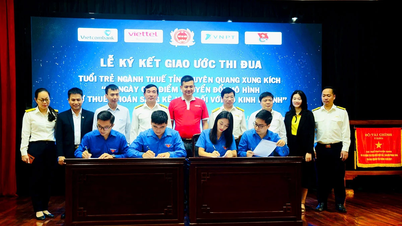



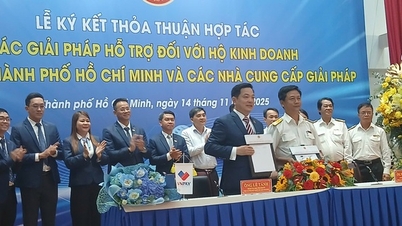



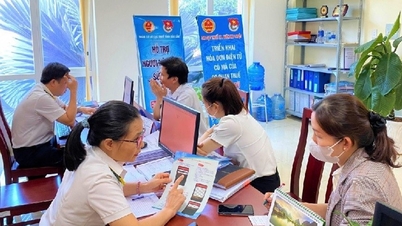
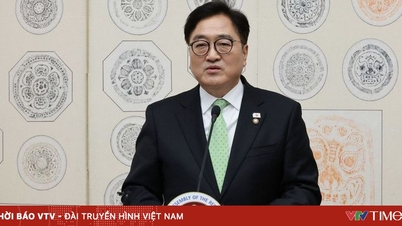

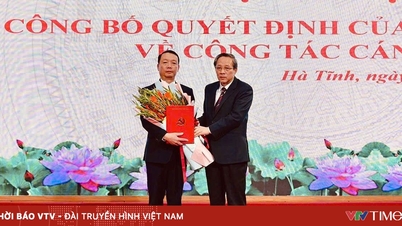
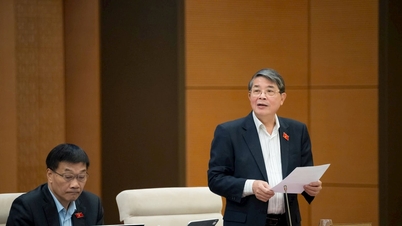







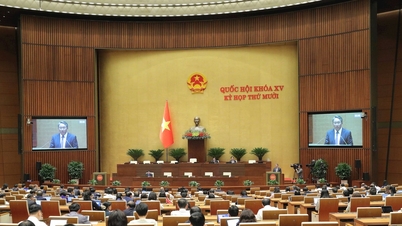
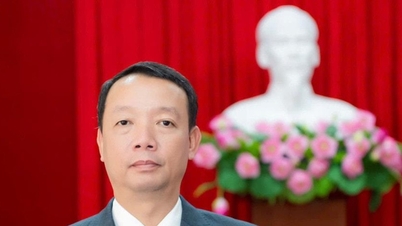

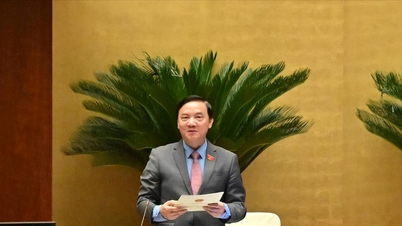
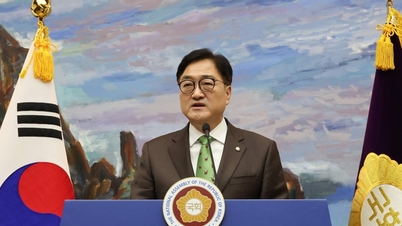























































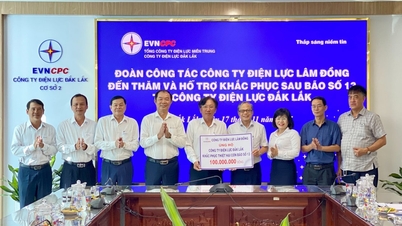

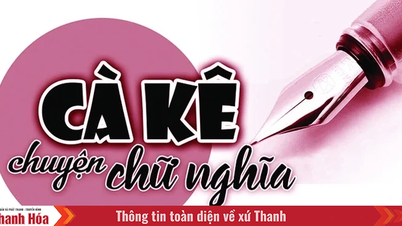



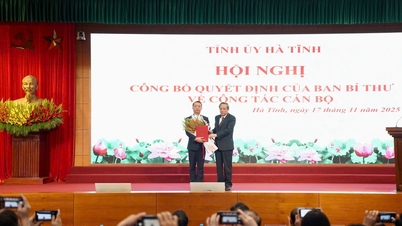


















Comment (0)